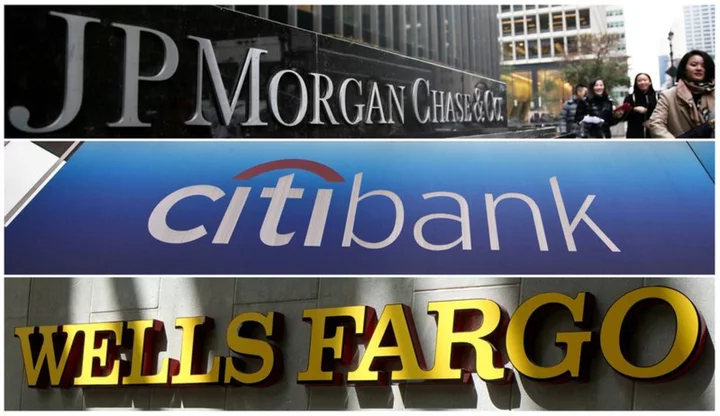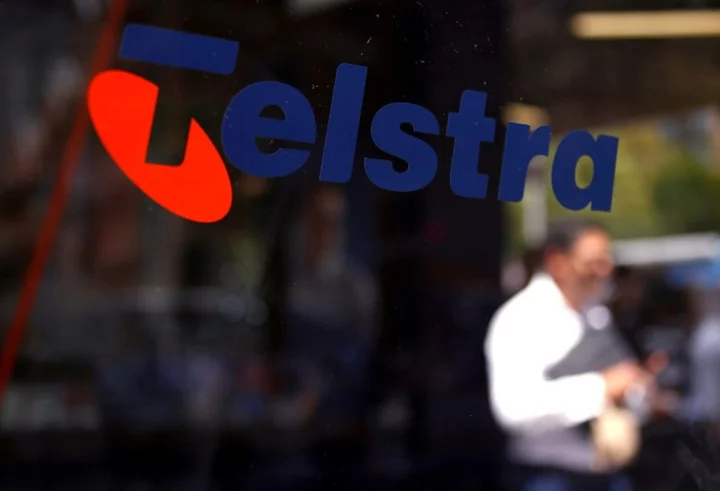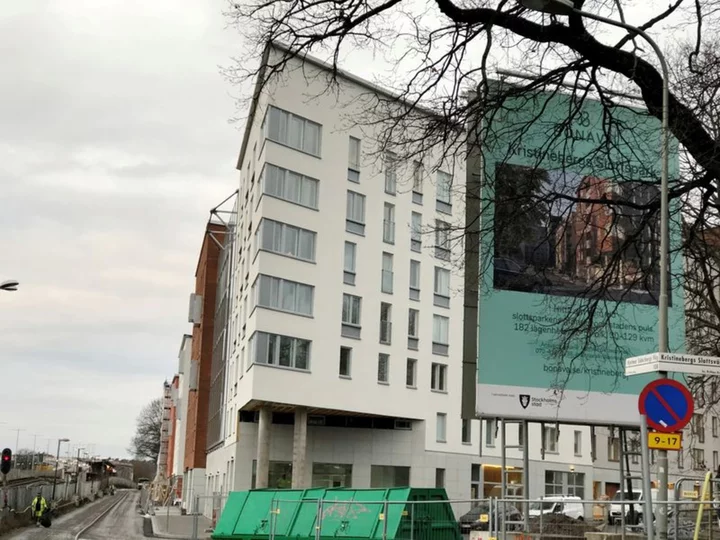By Manya Saini
(Reuters) -U.S. bank stocks rose in premarket trading on Thursday after the Federal Reserve's stress test showed the lenders have adequate capital to survive an economic slump even though analysts doubted if that would lead to higher returns for shareholders.
The test showed the average capital ratio for the 23 banks was higher than last year when the central bank had reviewed 34 lenders against a slightly easier scenario.
This year's test, which was devised before the latest banking crisis, checked if banks would stay above the minimum 4.5% capital ratio during economic stress and macroeconomic instability.
Shares of the top performer in the test, Charles Schwab, gained 2.2%. Major banks JPMorgan Chase, Wells Fargo, Morgan Stanley, Goldman Sachs and Bank of America also gained between 1.2% and 1.9%.
Of the six regional lenders that were part of the test, Bank of New York Mellon and US Bancorp added 1.5% and 0.8%, respectively.
While the test results paved way for shareholder returns through dividends and buybacks, Wall Street analysts warned an uncertain economy and banks awaiting regulatory clarity will lead to limited capital return in the near-term.
"Upcoming regulations will likely lead to higher capital requirements for all banks above $100 billion of assets," said analysts at brokerage Jefferies, adding that many banks have already pulled back on capital return.
RBC Capital Markets analysts said though the largest U.S. banks remain strong even in a severely stressed scenario, management teams will likely be prudent on capital.
"With the recent banking crisis driving banks to be more conservative in the near-term on capital and balance sheet management, we see share buyback activity as being limited for the remainder of 2023," the brokerage said.
Citizens Financial dropped 2.2% after the regional lender came in last. J.P. Morgan downgraded the bank to 'neutral' in anticipation of an increase in capital requirements hurting its profitability.
Citigroup rose marginally, but trailed its peers as analysts expect that an increase in its stress capital buffer would hamper its plans to improve profitability.
"Citi will now have the highest CET1 requirement among our banks at 12.3%," J.P. Morgan analysts wrote in a client note.
U.S. banks have regained some ground after a troubled start to the year that was marked by the collapse of three mid-sized banks due to a flight of deposits at Silicon Valley Bank.
"While the results were not a surprise, perhaps the bank stocks can react positively as one uncertainty is cleared... banks remain in a solid fundamental position should the economy enter a recession," Raymond James analysts said.
The KBW Regional Banking Index has recovered 6.04% this month, but still remains down 24.5% for the year, through previous close.
Meanwhile, the S&P 500 Banks Index, tracking a basket of large-cap bank stocks, is up 0.9% quarter-to-date, but has fallen 12.2% so far this year.
(Reporting by Manya Saini in Bengaluru; Additional reporting by Niket Nishant; Editing by Arun Koyyur)









